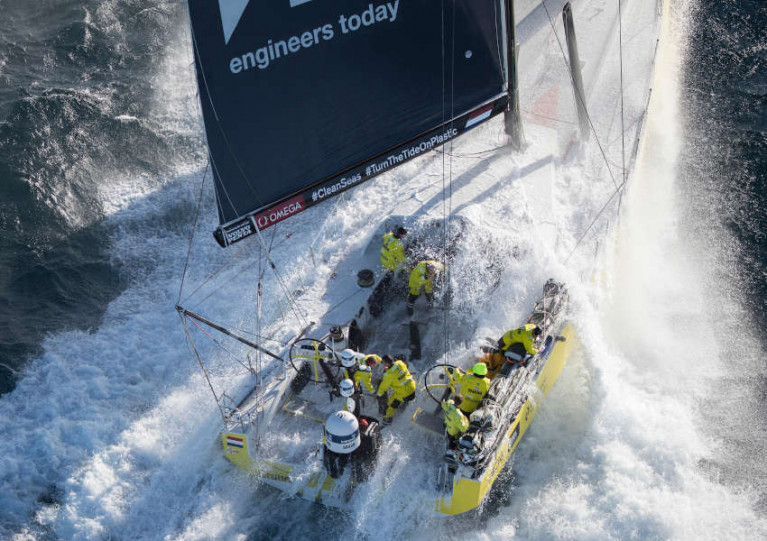The full race route and schedule have been announced for The Ocean Race Europe next month.
Some of the best sailors of the world will race in stages from Lorient in France to Genoa in Italy in two classes: the one-design VO65 and IMOCA.
They will set off from Lorient on Saturday 29 May, with stops in Cascais, Portugal (coastal race on Saturday 5 June and leg start on Sunday 6 June) and Alicante, Spain (leg start Sunday 13 June) before the finish in Genoa with a coastal race on Saturday 19 June.
Each of the offshore legs will last around three to four days and will be scored equally, with bonus points available to the top three finishers in the two single-day coastal races.
 The full race route and schedule have been announced for The Ocean Race Europe
The full race route and schedule have been announced for The Ocean Race Europe
The VO65 and IMOCA fleets will be competing in separate divisions for their own The Ocean Race Europe trophy.
Seven teams are expected in the VO65 class, including entries from Austria (Austrian Ocean Race Project), Lithuania (AmberSail2), Mexico (Viva Mexico), the Netherlands, Poland (Sailing Team Poland) and Portugal (Mirpuri Foundation Racing Team).
There will be at least five entries in the IMOCA fleet, representing France (Bureau Vallée, CORUM L´ Épargne and LinkedOut), Germany (Offshore Team Germany) and the USA (11th Hour Racing Team, with a possibility of up to two more teams still to confirm participation.
All the teams are seeing this event as the first stop on the road to the 2022-23 edition of The Ocean Race, which will mark the 50th anniversary of the round-the-world challenge.
Prior to the race start in Lorient, four of the northern European-based VO65 teams will be sailing in The Ocean Race Europe Prologue, with stops in Klaipeda, Lithuania; Gdynia, Poland; and Stockholm, Sweden.
In addition to the on-the-water action, The Ocean Race Europe will support a robust sustainability programme, including education initiatives, on-board science data collection and social and environmental policy roundtable events aimed at driving solutions towards ocean health and reducing the impact of climate change on the ocean.
Teams will be encouraged to fully participate through The Ocean Race Guardians Award for best sustainable practice.
And several teams will carry scientific equipment on board to capture measurements of microplastics in the water and data about the impact of climate change on the seas — vital information about the impact that humans are making on the ocean.
 Fitting of the microplastic data equipment on the AkzoNobel boat in Auckland on 3 March 2018 Credit: Jesus Renedo/Volvo AB
Fitting of the microplastic data equipment on the AkzoNobel boat in Auckland on 3 March 2018 Credit: Jesus Renedo/Volvo AB
Mairéad O’Donovan, The Ocean Race’s Science Programme lead said: “We know how important the ocean is, not just to the sport we love, but in regulating the climate and providing us with food, jobs and the oxygen we breathe. We also know that human impacts are seriously degrading the ocean.
“By capturing data about the state of our seas, through this unique collaboration between sailors and ocean research organisations, we are able to contribute to increased understanding of ocean health.
“It’s a privilege to be able to provide data of value to the scientific community and it’s vital that governments act on the scientific evidence to protect and restore our ocean and all that depends on it.”
Race organisers will have a strict Covid-19 protocol in place, including testing and small group ‘bubbles’ that limit interaction between sailing teams and outsiders.































































